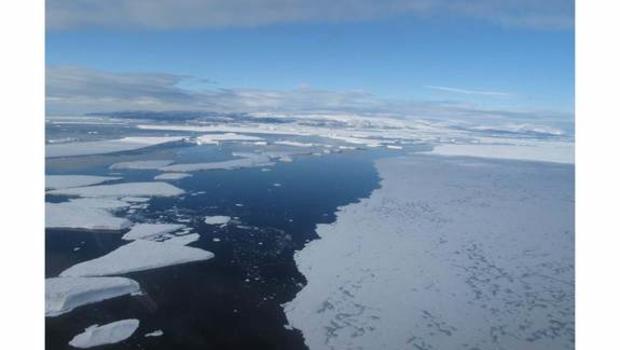
Su Nature Climate Change, Christopher Watson et al. soprattutto australiani, ricalcolano l’innalzamento del livello del mare tenendo conto della deriva dei satelliti e del degrado della loro strumentazione, con due metodi diversi. Trovano che il tasso di innalzamento non ha rallentato di 0,058 mm/anno dal 1993, come sembrava, ma ha continuato al ritmo di
+2.6 ± 0.4 mm yr?1 and +2.9 ± 0.4 mm yr1,
a seconda del metodo usato, cioè entro la previsione (3mm/anno± 0,5) dei modelli climatici. Meno di quanto stimato dal rapporto IPCC del 2013 (3,2 mm/anno), però
larger than the twentieth-century acceleration.
Rispetto al secolo scorso, l’accelerazione è dovuta innanzitutto allo scioglimento dei ghiacci groenlandesi e un po’ meno a quello della penisola antartica occidentale che di recente accelera pure lui.
*
Tanto per non sbagliare, una caterva di ricercatori di mezzo mondo intitolano un lavoro “Water use efficiency and transpiration across European forest during the Anthropocene” (nel secolo scorso, in realtà). Stando agli anelli degli alberi, l’effetto della maggior concentrazione atmosferica di CO2
corresponds to twentieth-century intrinsic water-use efficiency (iWUE) increases of 14 ± 10 and 22 ± 6% at broadleaf and coniferous sites, respectively
il che conferma una ricerca uscita l’anno scorso, ma i modelli danno risultati molto diversi:
when operating these models with climate drivers reintroduced, despite decreased stomatal opening, 5% increases in European forest transpiration are calculated over the twentieth century. This counterintuitive result arises from lengthened growing seasons, enhanced evaporative demand in a warming climate, and increased leaf area, which together oppose effects of CO2-induced stomatal closure. Our study questions changes to the hydrological cycle, such as reductions in transpiration and air humidity, hypothesized to result from plant responses to anthropogenic emissions.
L’incertezza di 14 ± 10 e 22 ± 6% mi sembra tanta, poi guardo meglio la bibliografia.
*
Questo dovrebbe interessare le Ong. Pieter Elshout dell’università Radboud a Nimega et al. propongono un nuovo sistema per calcolare
the global warming performance of crop based biofuels,
che chiamano “tempo di rimborso dei gas serra”, GPBT dall’acronimo inglese:
the number of years it takes before the greenhouse-gas savings due to displacing fossil fuels with biofuels equal the initial losses of carbon and nitrogen stocks from the original ecosystem
per il bioetanolo da mais, canna da zucchero e frumento invernale (!) e per il bio-gasolio da colza e soia, con molta irrigazione e aggiunta di fertilizzanti, o senza:
Overall, GPBTs were found to range between 1 and 162 years (95% range, median: 19 years) with the longest GPBTs occurring in the tropics. Replacing no-input with high-input farming typically shortened the GPBTs by 45 to 79%.
In verde, le zone dove si ripagano in meno di 5 anni. Visto così, il bioetanolo brasiliano sembra molto meno conveniente…
Notizie su questo istituto? Anthropocene Institute
Se ho capito bene sono interessati alle innovazioni tecnologiche orientate alla soluzione dei problemi ambientali.
Armando,
è quello di Carl Page (famiglia Google), non so cosa faccia in proprio – ma tenga conto che in California ci sono decine di istituti simili.
@ocasapiens
Ho trovato quell’istituto cercando “anthropocene technolgies institutes”
E’ lo stesso Carl Page che qualche settimana fa era in gita dalle parti di Padova ?
Sembrerebbe che neanche l’appartenenza ad una famiglia proprietaria di una delle più grandi imprese economiche e tecnologiche dei nostri tempi è una garanzia di immunità al virus pseudoscientifico!
I ricchi sono spesso veramente stravaganti!!
Armando,
da quello che dicono sul sito, sostengono iniziative come quelle dello Scripps che fa bella ricerca. E foto non ritoccata o Carl Page era Padova quanto Bill Gates, c’era un giornalista che ha fatto tante foto e ha detto di conoscerlo perché gli aveva mandato il suo libro… Toh, da oggi non fa più il giornalista.
@ocasapiens
Carl Page era a Padova quanto Bill Gates
Visto che Bill Gates all’ICCF19 non si è visto [neanche di passaggio], dobbiamo dedurre che Lewan non ha incontrato Carl Page a Padova ?
ICCF19 conversations and impressions Mats Lewan
One of them was Carl Page [brother of Google CEO Larry Page] who is a strong supporter of the field which he knows well, and while talking with me and Robert Godes of Brillouin Energy, Page told me that he had invested in this company, and that he also found Godes’ theory interesting (I got some good briefing from Godes on his technology which I have studied too little before). BTW, Page also confirmed the rumor about him trying to put up a meeting between Rossi and Elon Musk, which I covered in my book, although he was a little sad that Rossi perceived him as a venture capitalist and not an angel investor.
Sylvie Coyaud l’ antitaliana http://www.giuseppevatinno.it/wordpress/?p=1919